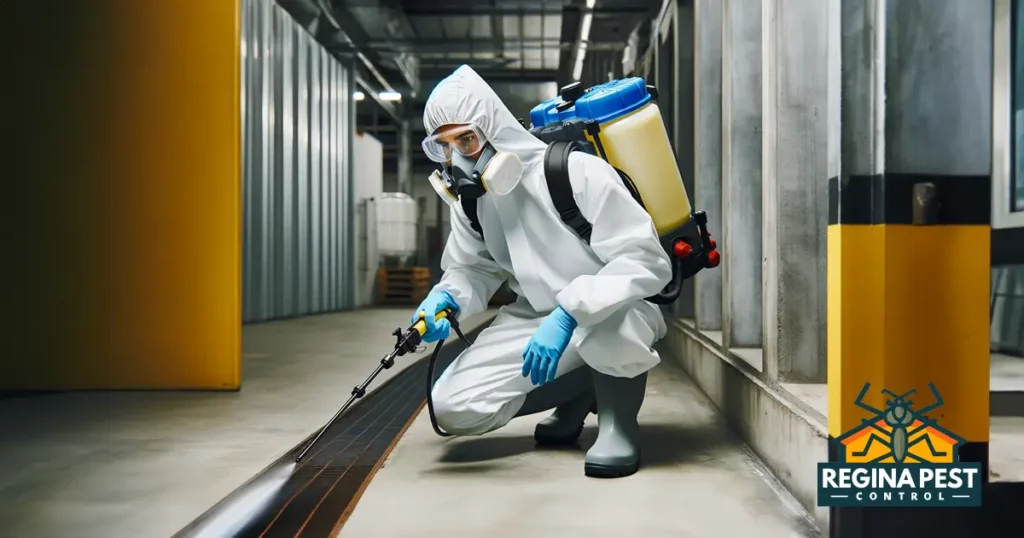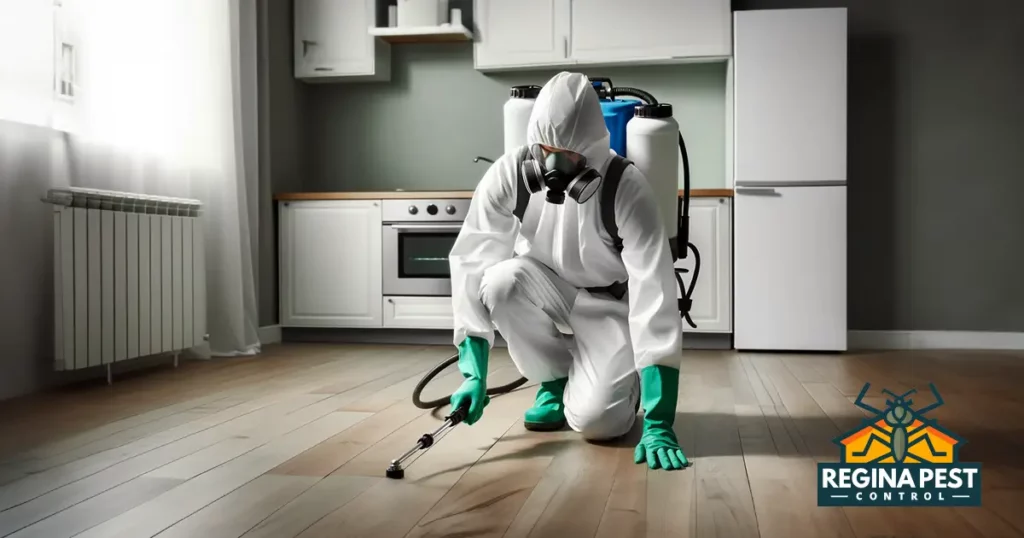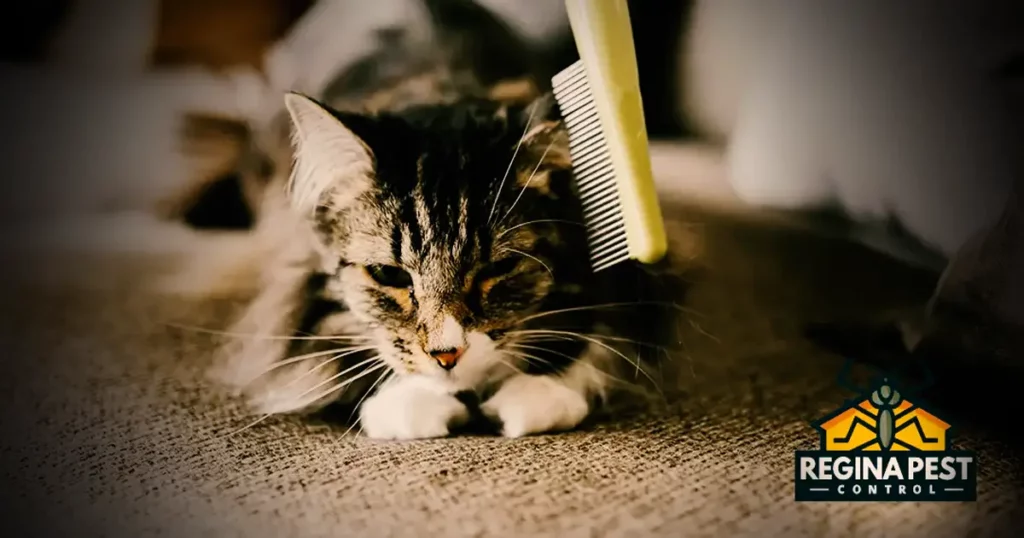Are pests invading your home or office and driving you crazy? It’s time to take control! In this article, Regina Pest Control will explore the various pest control choices available to help you ensure a pest-free environment. Whether you are dealing with pesky mosquitoes, persistent rodents, or pesky ants, there are effective solutions out there to meet your specific needs.When it comes to pest control, you have a plethora of options to choose from, ranging from DIY methods to professional services. We will discuss the pros and cons of each option, so you can make an informed decision on the best course of action for your situation. From natural remedies and traps to chemical treatments and fumigation, understanding the different approaches and their effectiveness is essential. Additionally, we will highlight the importance of preventive measures to keep pests at bay in the long run. Don’t let pests take over your space any longer. Join us as we delve into the world of pest control and discover the right solution to reclaim your home or office from unwelcome invaders.
Table of Contents
- Common Household Pests
- The Importance of Pest Control
- Different Pest Control Methods
- Chemical Pest Control
- Pros of Chemical Pest Control:
- Cons of Chemical Pest Control:
- Organic Pest Control
- Pros of Organic Pest Control:
- Biological Pest Control
- Pros of Biological Pest Control:
- Integrated Pest Management (IPM)
- Pros of Integrated Pest Management (IPM):
- DIY Pest Control Tips
- Hiring Professional Pest Control Services
- Conclusion
Common Household Pests
No one likes having pests in their home or office. These unwanted visitors can be a nuisance and cause a variety of problems. Let’s take a closer look at some of the most common household pests:- Mosquitoes: These tiny insects thrive in warm and humid environments. They not only leave itchy bites but can also transmit dangerous diseases like dengue fever and malaria. Mosquitoes are most active during dusk and dawn, making them a constant annoyance.
- Rodents: Rats and mice are notorious for causing damage to property and spreading diseases. They can chew through electrical wires, insulation, and even contaminate food. Their presence can be identified by droppings, gnaw marks, and unusual sounds during the night.
- Ants: Ants are social insects that form colonies and can quickly infest your space. They are attracted to food and water sources, making the kitchen and bathroom their favorite spots. Ants leave behind pheromone trails, allowing others to follow, which can lead to a significant ant problem if not addressed promptly.
- Cockroaches: Cockroaches are known for their ability to survive in various environments. They can spread bacteria, trigger allergies, and contaminate food. These nocturnal pests are often found in dark and damp areas like kitchens and bathrooms.
- Bedbugs: Bedbugs are small, flat insects that feed on the blood of humans and animals while they sleep. They can cause itchy bites and leave behind small red stains on your sheets. Bedbugs are often transported through luggage or used furniture, making them a common problem in hotels and apartments.
The Importance of Pest Control
Pest control is not just about eliminating annoying pests; it is also essential for maintaining a healthy and safe living environment. Here are a few reasons why pest control is crucial:- Health concerns: Pests like mosquitoes, rodents, and cockroaches can carry and transmit various diseases. Mosquitoes are known carriers of diseases such as Zika virus, dengue fever, and West Nile virus. Rodents can spread salmonella and hantavirus through their droppings and urine. Cockroaches can trigger asthma attacks and allergies.
- Property damage: Pests can cause significant damage to your property. Rodents can chew through electrical wires, leading to potential fire hazards. Termites can weaken the structural integrity of your home by feeding on wood. If left uncontrolled, pests can lead to costly repairs and renovations.
- Food safety: Pests like ants and cockroaches are attracted to food sources and can contaminate them with their droppings and bacteria. This poses a risk to your health and can lead to foodborne illnesses.
- Peace of mind: Living in a pest-free environment provides peace of mind. You can rest easy knowing that your home or office is free from unwanted intruders and potential health hazards.
Different Pest Control Methods
When it comes to pest control, there are several methods available, each with its own set of advantages and disadvantages. Let’s take a closer look at some of the most common pest control methods:Chemical Pest Control
Chemical pest control involves the use of pesticides to eliminate pests. These chemicals are designed to target specific pests and disrupt their life cycle. While chemical pest control can be highly effective, it should be used with caution due to potential health and environmental risks.Pros of Chemical Pest Control:
- Provides quick and effective results.
- Targets specific pests and their life stages.
- Can be used for both indoor and outdoor pest control.
Cons of Chemical Pest Control:
- Can be harmful to humans, pets, and beneficial insects if not used correctly.
- Some pests may develop resistance to certain pesticides over time.
- Harmful to the environment if not applied responsibly.
Organic Pest Control
Organic pest control focuses on using natural and eco-friendly methods to manage pests. This approach avoids the use of synthetic chemicals and instead relies on natural substances and biological control agents.Pros of Organic Pest Control:
- Safe for humans, pets, and beneficial insects.
- Environmentally friendly and sustainable.
- Can be used in organic farming and gardening.
- Cons of Organic Pest Control:
- May require more time and effort to achieve desired results.
Biological Pest Control
Biological pest control involves using living organisms to control pest populations. This method relies on the natural enemies of pests, such as predators, parasites, and pathogens, to reduce their numbers.Pros of Biological Pest Control:
- Environmentally friendly and sustainable.
- Targets specific pests without harming beneficial insects.
- Reduces the need for chemical pesticides.
- Cons of Biological Pest Control:
- May take longer to achieve desired results.
- Requires specific knowledge and expertise to implement effectively.
- Some biological control agents may not be readily available.
Integrated Pest Management (IPM)
Integrated Pest Management (IPM) is a holistic approach that combines multiple pest control methods to achieve long-term pest management. It focuses on preventing pest infestations through proactive measures and minimizing the use of pesticides.Pros of Integrated Pest Management (IPM):
- Emphasizes prevention rather than relying solely on pest control.
- Minimizes the use of chemical pesticides.
- Customizable to specific pest control needs.
- Cons of Integrated Pest Management (IPM):
- Requires ongoing monitoring and maintenance.
- May require more time and effort compared to other methods.
- Initial setup costs may be higher.
DIY Pest Control Tips
If you prefer a hands-on approach and want to tackle the pest problem yourself, here are some useful DIY pest control tips:- Seal entry points: Inspect your home or office for any cracks, gaps, or holes where pests can enter. Seal these entry points using caulk, weatherstripping, or wire mesh.
- Remove food and water sources: Keep your space clean and free of food and water sources. Store food in airtight containers, fix leaky faucets, and clean up spills promptly.
- Use natural repellents: Try using natural repellents like essential oils, vinegar, or diatomaceous earth to deter pests. These substances are safe for humans and pets but can be effective in repelling pests.
- Set traps: Use traps to capture pests like rodents and insects. There are various types of traps available, including snap traps, glue traps, and live catch traps.
- Maintain a clean environment: Regularly clean and declutter your space to eliminate hiding spots for pests. Vacuum carpets, sweep floors, and dispose of garbage properly.
Hiring Professional Pest Control Services
For more complex pest problems or situations that require specialized knowledge and equipment, hiring professional pest control services is often the best option. Here are a few reasons why:- Expertise and experience: Professional pest control technicians have the knowledge and experience to identify the type of pest and develop an effective treatment plan.
- Safe and effective methods: Professionals use industry-approved methods and products that are safe for humans and pets while effectively eliminating pests.
- Long-term solutions: Professional pest control services often provide long-term solutions and offer warranties for their services, ensuring that the pest problem is effectively resolved.
- Time and convenience: Hiring professionals saves you time and effort, allowing you to focus on other priorities while leaving the pest control to the experts.





